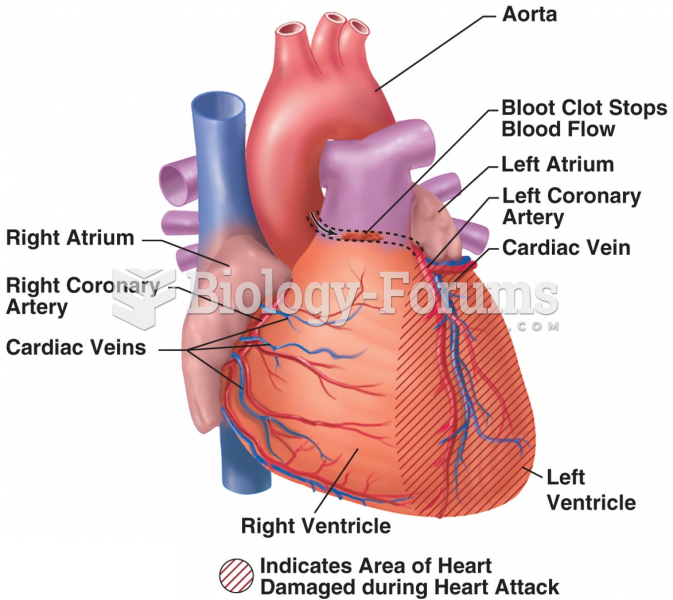|
|
|
Though methadone is often used to treat dependency on other opioids, the drug itself can be abused. Crushing or snorting methadone can achieve the opiate "rush" desired by addicts. Improper use such as these can lead to a dangerous dependency on methadone. This drug now accounts for nearly one-third of opioid-related deaths.
Egg cells are about the size of a grain of sand. They are formed inside of a female's ovaries before she is even born.
If all the neurons in the human body were lined up, they would stretch more than 600 miles.
Automated pill dispensing systems have alarms to alert patients when the correct dosing time has arrived. Most systems work with many varieties of medications, so patients who are taking a variety of drugs can still be in control of their dose regimen.
The average office desk has 400 times more bacteria on it than a toilet.







